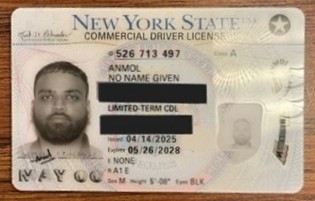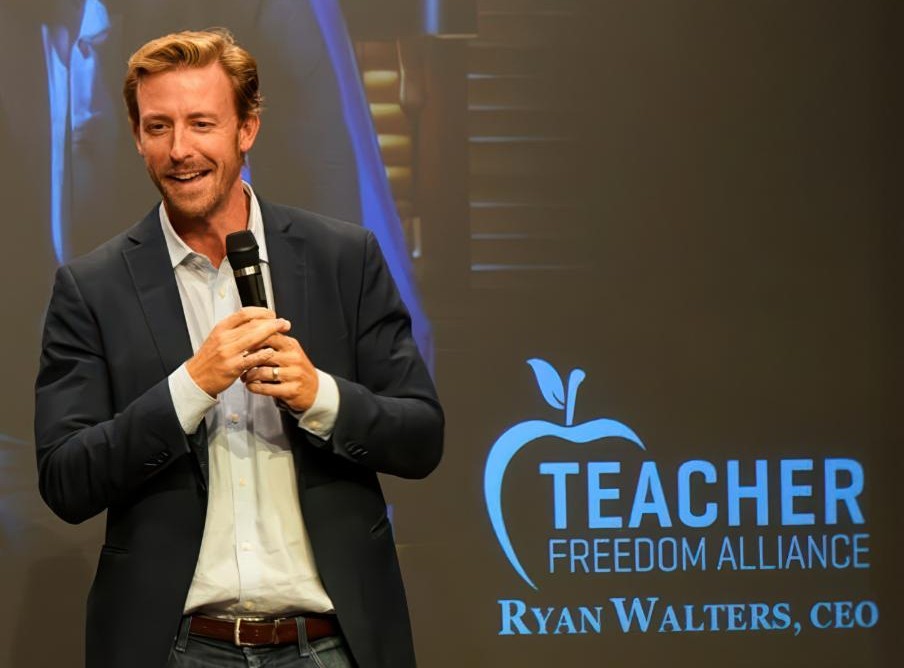Pictured: Gov. John Walton
Lessons of Gov. John Walton Apply to Oklahoma Today
By Steve Byas
John Walton had served only a few months as governor, in 1923, before the Oklahoma Legislature voted to impeach him, and remove him from office.His brief term illustrates vividly how certain inherently flawed election systems can produce such a man, who was justifiably ousted from the governor’s office. In 1917, Walton was elected Commissioner of Public Works in Oklahoma City. A charismatic politician, Walton made use of jazz bands at his campaign events, and he won the mayor’s office in Oklahoma City in 1919.
Walton’s political career was helped along by the Socialist Party of Oklahoma and the Farmer-Labor Reconstruction League (another left-wing organization). It should be noted that the Bolsheviks had imposed communism on Russia in 1917, eventually creating the Soviet Union. Their symbol was the hammer (a symbol of the laborer) and the sickle (a symbol of the farm worker). At the Shawnee Convention in 1922, organized by a prominent socialist leader in Oklahoma, Patrick Nagle, the Socialist Party adopted a very Marxist platform, and Walton, in exchange for their endorsement, agreed to run for governor on that platform.
Socialist leader Nagle was a key advisor to Governor Walton, after his election. Walton used his pardon power as governor to prevent any executions from taking place in Oklahoma, as he was an opponent of the death penalty. Additionally, he paroled others who had been convicted of serious crimes.
Walton picked George Wilson to be president of Oklahoma A & M (now Oklahoma State), the manager of the socialistic Farmer-Labor Reconstruction League.
Despite the provision of the state Constitution which prohibited the governor from suspending habeas corpus, Walton did just that in Tulsa County. When a grand jury attempted to meet to convene and examine the policies of the governor, Walton called out the Oklahoma National Guard to prevent it. He threatened to have the Guard shoot any member of the Legislature who dared to meet at the Capitol. After National Guardsmen prevented 68 members of the Legislature from entering the Capitol, they reconvened at the Skirvin Hotel in Oklahoma City, where they encountered 54 men from Chicago who attempted to prevent them from meeting there.
When an initiative petition called for a special meeting of the Legislature, to consider impeachment, Walton threatened to use the Guard to prevent the election. This threat proved unsuccessful, however, and the election to call a special session of the Legislature was approved by the voters, with only minor incidents.
Under Speaker of the House William McBee of Duncan, the House brought several charges against Walton, and the State Senate convicted Walton on 11 of them, on November 19, 1923, including accusations of his padding the public payroll, suspension of habeas corpus, and abuse of the pardon power.
Amazingly, Walton then launched a bid for the U.S. Senate in 1924 and won the Democratic Party nomination with a mere 30 percent of the vote. At that time, there were no run-off primaries in the state. All a candidate had to do to get the party’s nomination was win a plurality – more votes than anyone else – and not necessarily a majority of the vote. Walton, however, was crushed in the general election by Republican William Pine, by a margin of 62-35 percent.
Some Democrats then proposed a system of ranked-choice voting, another flawed election scheme, which required voters to support second and third choices for their ballots to count. The Oklahoma Supreme Court declared that to be unconstitutional, and this led to the much fairer “run-off primary” being enacted, which we use today. The thinking behind the run-off primary is that a flawed person like Walton might be able to run first with only 30 percent of the vote, but not be the candidate that most party members would actually favor to represent them in the general election.
Today, there is a movement to implement a “jungle primary.” In a jungle primary, all candidates of all parties and all independents would run on one “unified” ballot, with the top two vote-getters advancing to the general election. Such a system could produce another John Walton-type of office holder. In Louisiana, their “jungle open Primary” produced two candidates who could not have won their respective Democratic and Republican primaries, but they were able to run first and second in a crowded field, although they could get nowhere near a majority of the votes. Had there been closed primaries – one for the Democrat and one for the Republican – with a run-off, the people of Louisiana would not have had to choose between a Democrat who was later convicted of bribery, and a Republican who was a leader of the Ku Klux Klan. As they said in Louisiana at the time, the people were stuck with a choice between a crook and a bigot.
We do not want another John Walton in Oklahoma, and that is another reason we do not need to adopt schemes like the jungle open primary.
Steve Byas is director of the History Program at Randall University.










Latest Commentary
Thursday 30th of October 2025
Thursday 30th of October 2025
Thursday 30th of October 2025
Thursday 30th of October 2025
Thursday 30th of October 2025
Thursday 30th of October 2025
Thursday 30th of October 2025
Thursday 30th of October 2025
Thursday 30th of October 2025